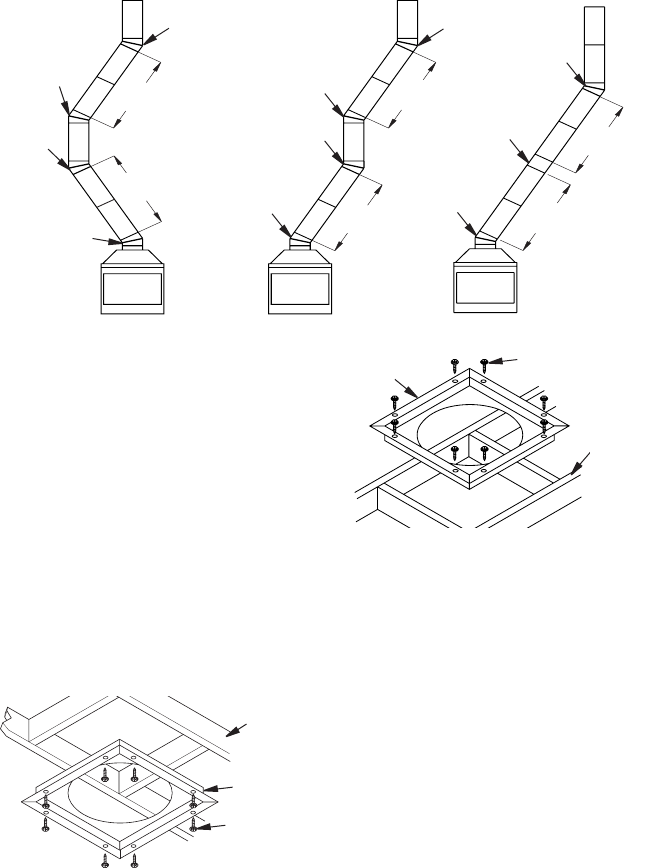Special offers from our partners!

Find Replacement BBQ Parts for 20,308 Models. Repair your BBQ today.

www.desatech.com
122273-01A10
VENTING INSTALLATION
Continued
Firestop spacers are required at each point
where the chimney penetrates a oor space.
Their purpose is to establish and maintain
the required clearance between the chimney
and the combustible materials. When the pipe
passes through a framed opening into a living
space above, the restop must be placed onto
the ceiling from below as shown in Figure 13.
They also provide complete separation from
one oor space to another or attic space as
required by most codes. When the double wall
pipe passes through a framed opening into an
attic space, the restop must be placed into an
attic oor as shown in Figure 14.
Figure 13 - Firestop Spacer with Living
Space Above Ceiling
Figure 14 - Firestop Spacer with Attic
Space Above Ceiling
Existing
Ceiling
Frame
Firestop
Spacer
Screws or
Staples
(Min. of 8)
Firestop
Spacer
Screws or Staples
(Min. of 8)
To maintain a 1" (36" Models) or 2" (42/50"
Models) clearance to the pipe on a roof with a
pitch, a rectangular opening must be cut.
1. Determine center point through which pipe
will penetrate roof.
2. Determine center point of roof. Pitch is
distance the roof drops over a given span,
usually 12". A 6/12 pitch means that roof
drops 6" for each 12" measured horizon-
tally down from roof rafters.
3. Use roof opening chart (Figure 15, page
11) to determine correct opening length
and ashing required.
4. Remove shingles around opening mea-
sured. Cut out this section.
Existing
Ceiling
Frame
Figure 12 - Typical Offset Terminations
Return
Elbow
Offset
Elbow
Return
Elbow
Offset
Elbow
6' Max.
6' Max.
6' Max.
6' Max.
6' Max.
6' Max.
Return
Elbow
Offset
Elbow
Offset
Elbow
Return
Elbow
A B C
Offset
Elbow
Ceiling
Support Pipe
12S-12DM
Return
Elbow


















